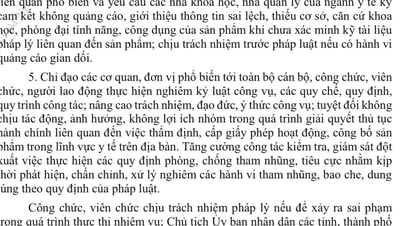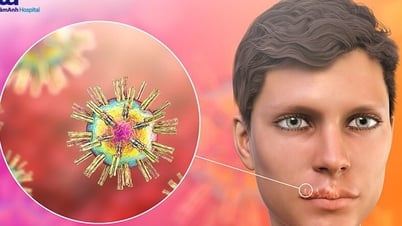Bananas contain potassium, vitamin B6, vitamin C and fiber, which help support heart health, the nervous system and the digestive system, according to the health site HealthShots (India).
However, because bananas contain natural sugar, diabetics need to consider how to consume them so as not to negatively affect blood sugar levels, according to Garima Goyal, a nutritionist in India.

Bananas contain potassium, vitamin B6, vitamin C, fiber, which helps support cardiovascular health, the nervous system, and digestion.
Photo: AI
When can diabetics eat bananas?
Whether diabetics can eat bananas depends on their blood sugar control.
If blood sugar levels are unstable or HbA1c (average blood sugar levels over the past 2-3 months) is high, you should limit or avoid eating bananas to prevent sudden increases in blood sugar.
In cases where blood sugar is well controlled and the patient has a healthy lifestyle, bananas can be part of the diet but in reasonable amounts and choosing the right type of banana.
Are green bananas or ripe bananas better for blood sugar?
The amount of sugar in bananas depends on the ripeness of the fruit. When bananas are unripe, they contain more resistant starch, a form of starch that is difficult to digest and helps slow the absorption of sugar into the bloodstream. Resistant starch can help improve insulin sensitivity, support blood sugar control, and contribute to digestive health.
As bananas ripen, resistant starch is converted into simple sugars such as glucose, fructose, and sucrose, which increase the glycemic index (GI). Therefore, ripe bananas can cause a rapid increase in blood sugar.
When bananas are eaten with foods like yogurt, nuts or peanut butter, digestion slows down, helping to reduce the impact on blood sugar.

Diabetics should be careful when eating bananas
Photo: AI
The best time to eat bananas for blood sugar
When you eat bananas in the morning or before exercising, your body will use glucose more efficiently.
Physical activity after eating bananas will help burn energy, avoiding the accumulation of sugar in the blood for too long.
If you eat bananas at the wrong time, such as after a main meal or late at night, the risk of increased blood sugar may be higher.
Diabetics should be careful when eating bananas.
Bananas provide quick energy, especially useful for people who exercise regularly.
The potassium content in bananas helps regulate blood pressure, reducing the risk of cardiovascular complications, a common problem in diabetics.
Additionally, the fiber in bananas aids digestion and helps control feelings of fullness, thereby contributing to the process of maintaining a healthy weight.
However, if blood sugar levels tend to rise rapidly after eating bananas, it's best to limit them or replace them with fruits with a lower glycemic index such as apples, pears or grapefruit.
Source: https://thanhnien.vn/chuyen-gia-dinh-duong-luu-y-cach-an-chuoi-o-nguoi-benh-tieu-duong-185250402160302803.htm


![[Photo] Readers line up to visit the photo exhibition and receive a special publication commemorating the 135th birthday of President Ho Chi Minh at Nhan Dan Newspaper](https://vphoto.vietnam.vn/thumb/1200x675/vietnam/resource/IMAGE/2025/5/17/85b3197fc6bd43e6a9ee4db15101005b)


![[Photo] More than 17,000 candidates participate in the 2025 SPT Competency Assessment Test of Hanoi National University of Education](https://vphoto.vietnam.vn/thumb/1200x675/vietnam/resource/IMAGE/2025/5/17/e538d9a1636c407cbb211b314e6303fd)
![[Photo] Prime Minister Pham Minh Chinh chairs meeting on science and technology development](https://vphoto.vietnam.vn/thumb/1200x675/vietnam/resource/IMAGE/2025/5/17/ae80dd74c384439789b12013c738a045)





















![[Photo] Nearly 3,000 students moved by stories about soldiers](https://vphoto.vietnam.vn/thumb/1200x675/vietnam/resource/IMAGE/2025/5/17/21da57c8241e42438b423eaa37215e0e)






































































Comment (0)